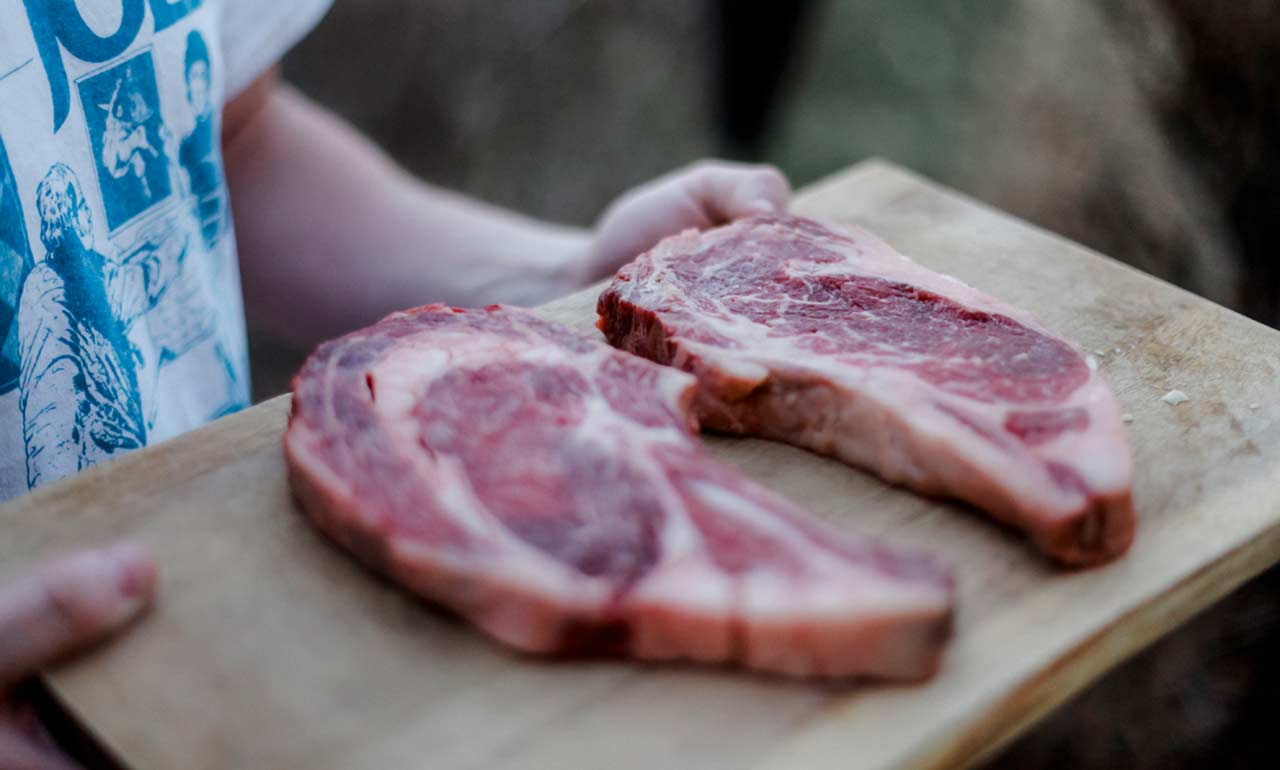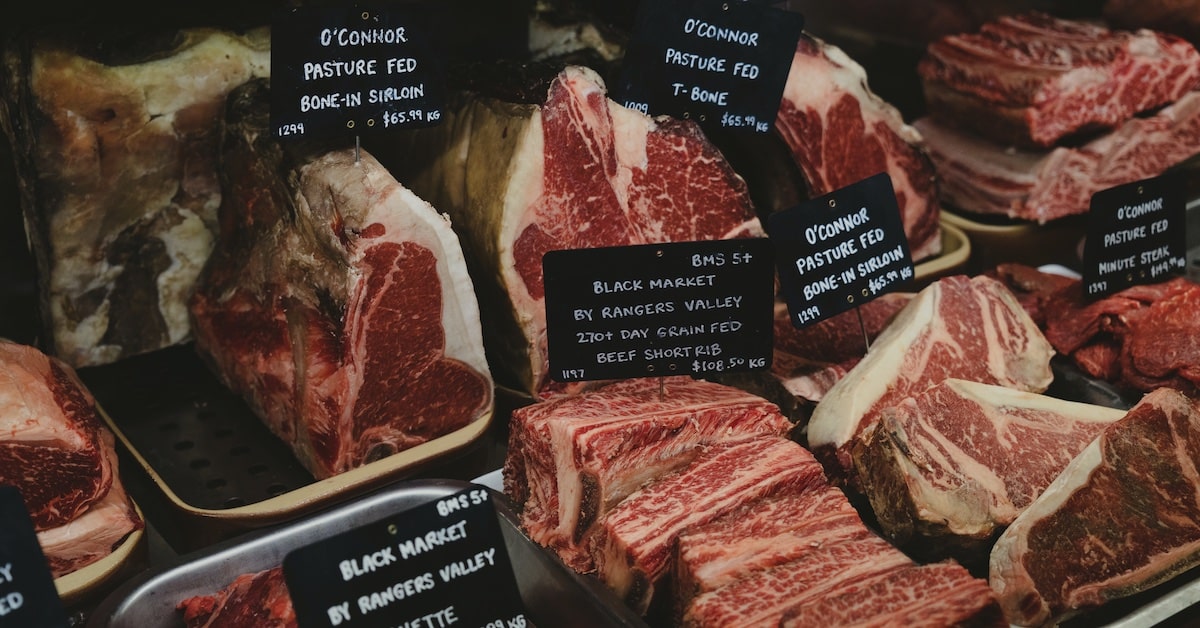Why Picking a Meat Market Over a Supermarket Makes a Distinction in Taste and Quality
The distinction between purchasing meat from a customized market versus a grocery store often lies in the nuanced layers of preference and high quality. Meat markets typically highlight freshness, sourcing their products from local farms, which not only enhances flavor yet likewise cultivates sustainable methods. Furthermore, the expertise of proficient butchers can provide indispensable understandings right into selecting the best cuts for different cooking applications, ensuring a more tailored experience. Nevertheless, the ramifications of these options extend beyond mere flavor; they elevate vital inquiries concerning the more comprehensive influence on customer routines and neighborhood economic situations. What else may be at stake?

Freshness of Products
Focusing on freshness is a significant benefit of picking a meat market over a grocery store. Meat markets commonly supply items that are sourced locally and refined with a concentrate on keeping optimal quality. Unlike grocery stores, where meat may be saved for extensive periods, meat markets usually get day-to-day shipments, making certain that their stock is continually replenished with high-quality cuts.
Moreover, meat markets usually have a much more reliable supply chain, reducing the time from farm to table. This fast turn over not only improves the taste and texture of the meat however additionally provides customers with guarantee regarding the quality of the products they acquire. The experienced butchers at meat markets can likewise give valuable understandings right into the quality of their offerings, as they are intimately acquainted with their vendors and the problems under which the meat is handled.
In addition, meat markets commonly focus on entire cuts and specialty items that may not be offered in grocery stores, enabling consumers to explore a range of choices that are fresher and a lot more delicious. This dedication to quality inevitably adds to a superior culinary experience, making meat markets an appealing option for discerning consumers.
Sourcing and Sustainability
The dedication to top quality at meat markets expands past freshness to encompass sourcing and sustainability practices. Unlike large grocery stores, which usually depend on mass-produced items, meat markets prioritize moral and regional sourcing. This method not only sustains regional farmers and ranchers but likewise reduces the carbon impact linked with delivering meat over cross countries.

In addition, meat markets frequently use a range of cuts and specialized meats that mirror the periods and neighborhood cooking traditions. This commitment to sustainability fosters a connection between consumers and their food sources, promoting transparency pertaining to the beginnings of the meat they acquire. By choosing meat markets, customers can enjoy not just boosted tastes yet additionally the satisfaction of supporting sustainable and responsible farming techniques.
Professional Understanding and Recommendations
While buying at a meat market, customers gain from the expert knowledge and individualized suggestions supplied by knowledgeable butchers. These specialists are commonly trained and have comprehensive experience in the meat industry, allowing them to give understandings that go far beyond the essentials discovered in a supermarket. They can guide consumers on choosing site the best cuts for specific dishes or events, guaranteeing optimum taste and tenderness.

Furthermore, butchers usually take the time to engage with customers, answering questions and sharing suggestions that are not easily available in a linked here supermarket setting. This level of customized service fosters a deeper connection in between consumers and their food, inevitably raising the general culinary experience. By choosing a meat market, consumers get to a wealth of knowledge that can significantly impact their food preparation and satisfaction of meat.
Taste Profiles and Variety
When exploring the offerings at a meat market, customers are often compensated with a varied variety of flavor profiles and cuts that are typically inaccessible in grocery stores. Unlike mass-produced meat items, which typically prioritize harmony, meat markets curate their choices based on quality and local uniqueness. This results in a variety of meats that mirror special tastes, appearances, and prep work methods.

Seasonal and locally sourced choices additionally boost the experience, as these products typically have premium freshness and taste. The knowledgeable butchers at meat markets can assist customers on the very best cuts for specific dishes, making sure that each option straightens with wanted taste profiles and cooking techniques. Generally, the range and top quality located in meat markets not just boost the cooking experience but likewise motivate expedition and testing in home food preparation.
Sustaining Regional Economic Situations
Picking a meat market not just boosts cooking experiences via varied taste accounts yet also plays a considerable role in supporting local economic climates (bagley meat market edwardsville il). When consumers go with meat markets over larger grocery store chains, they are more probable to involve with businesses that source their items from neighborhood ranches and manufacturers. This technique cultivates a sustainable agricultural setting, urging farmers to maintain conventional methods that generate high-quality meats
In addition, meat markets commonly utilize regional staff, which adds to work production and retention within the neighborhood. The economic influence expands past the immediate organization; cash spent at local facilities has a tendency to circulate within the area, benefiting various sectors such as transport, retail, and advertising. This regional financial investment assists boost the general financial health and wellness of the location.
Furthermore, meat markets frequently stress transparency and moral sourcing practices, which reverberate with consumers significantly concerned regarding the beginnings of their food. By choosing to buy from these facilities, customers not just enjoy remarkable items but likewise attest their commitment to supporting their neighborhood's economic situation. Essentially, choosing a meat market is a deliberate choice that supports both individual complete satisfaction and more comprehensive financial vitality.
Final Thought
Picking a meat market over a grocery store significantly affects preference and top quality. The focus on quality, sustainable sourcing, and expert understanding contributes to superior cooking experiences. Access to distinct cuts and diverse flavor profiles improves dish prep work and pleasure. In addition, sustaining local economies fosters click now community connections and advertises lasting farming techniques. On the whole, the advantages of choosing a meat market extend past specific choices, affecting more comprehensive ecological and economic elements while raising the art of cooking.
Unlike grocery stores, where meat may be stored for extensive durations, meat markets typically receive everyday shipments, guaranteeing that their inventory is consistently replenished with high-quality cuts.
The experienced butchers at meat markets can also supply beneficial understandings into the quality of their offerings, as they are totally familiar with their suppliers and the problems under which the meat is dealt with.
Moreover, meat markets commonly supply a range of cuts and specialty meats that show the seasons and neighborhood culinary customs. By choosing a meat market, customers gain accessibility to a wealth of expertise that can considerably influence their cooking and enjoyment of meat.
Unlike mass-produced meat items, which frequently focus on uniformity, meat markets curate their choices based on quality and regional specificity.